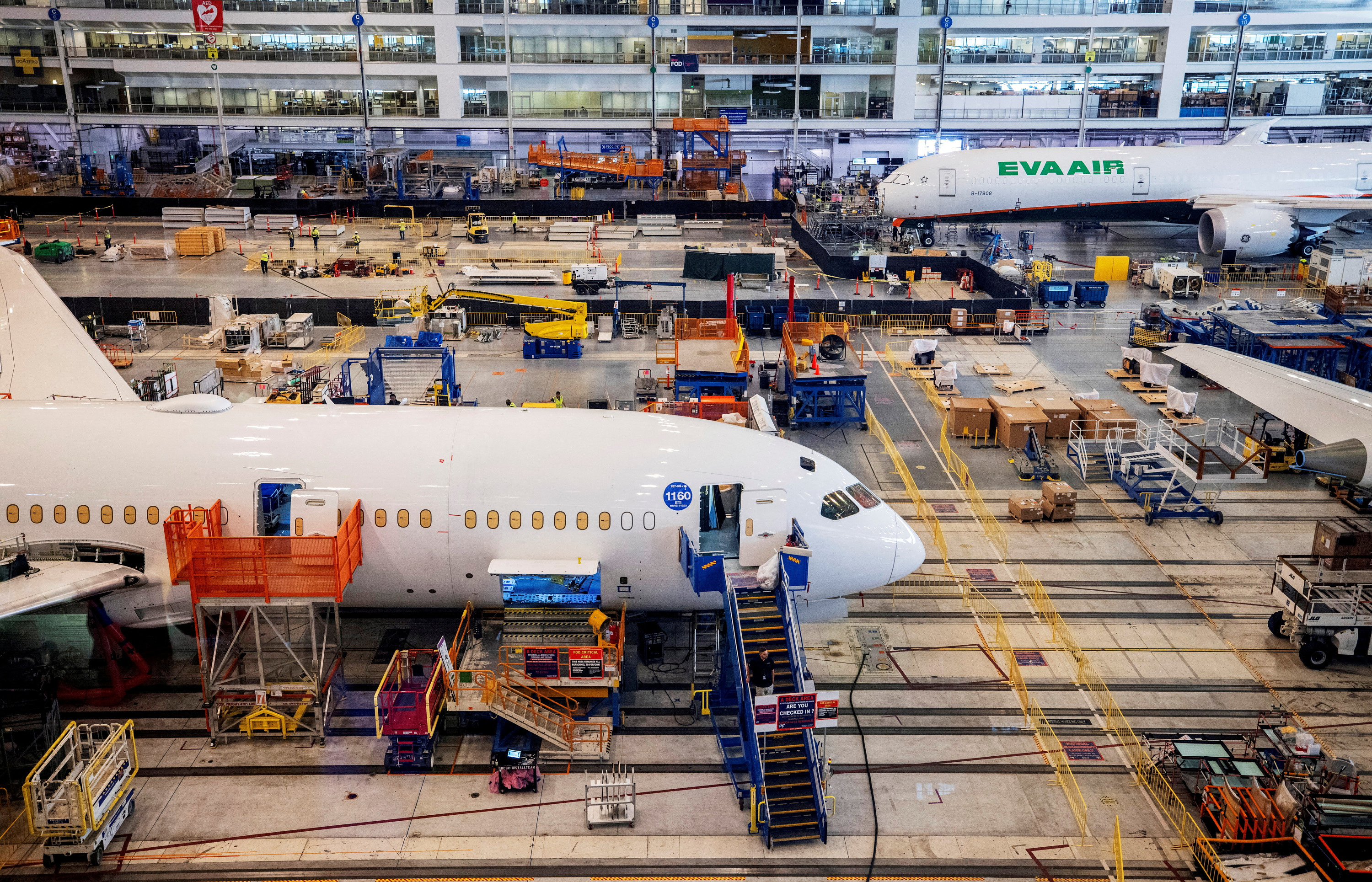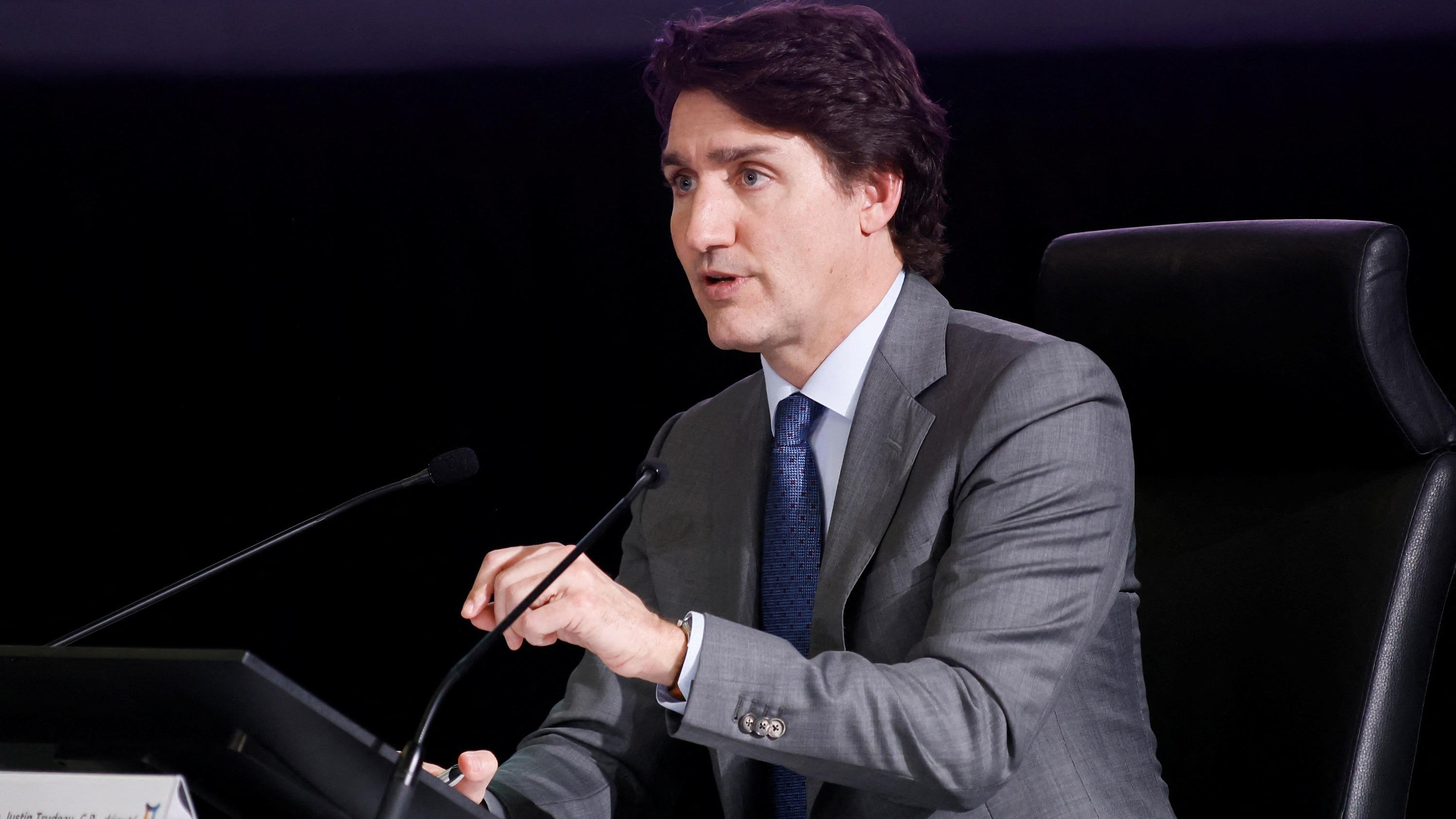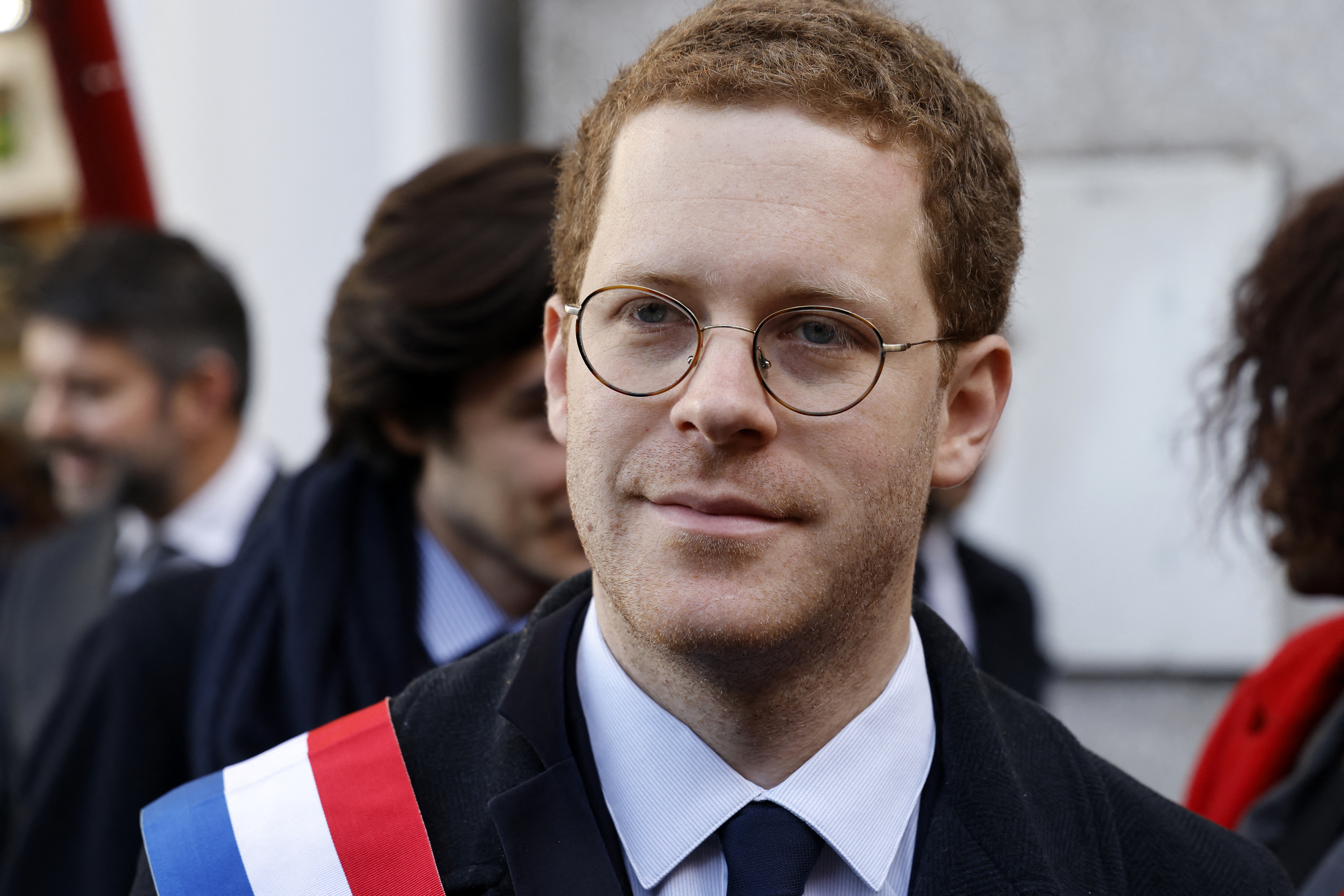Argentinian Rafael Mariano Grossi has eight children and a mission in life: to save the world from a nuclear catastrophe. The Director General of the International Atomic Energy Agency (IAEA) traveled to Iran months ago for negotiations, repeatedly warned of North Korea's nuclear arsenal and most recently exchanged views with US Secretary of State Antony Blinken and Annalena Baerbock.
But seldom before has a mission for Grossi been as tricky as it is these days. On Thursday, he and his team left in a convoy of armored SUVs for the Russian-held Zaporizhia nuclear power plant in southern Ukraine. The route passed through a buffer zone in the front region, where artillery thunder is regularly heard.
In March, Vladimir Putin's troops seized Europe's largest nuclear power plant, which has since been operated by Ukrainian personnel under the supervision of Russian troops. In the past few weeks, the situation has gotten out of control. The area in the war zone was shelled several times, and one block was temporarily shut down. Kyiv and Moscow blame each other for the attacks.
The greatest danger remains a permanent power failure that could lead to a meltdown. For the first time, independent experts are now inspecting the nuclear power plant over several days. "It's a mission aimed at preventing a nuclear accident," Grossi explained. And it's about getting a power plant that can generate electricity for millions of households.
The interests of the warring parties diverge as much as the hopes for a détente in the West are great. In a video speech, Ukrainian President Volodymyr Zelenskyy advocated the "demilitarization of the nuclear power plant". Ukraine must regain full control of the site. Demands that are in stark contrast to Russia's aspirations.
For Putin, the occupied nuclear power plant is another strategic weapon that he can turn against Ukraine and Europe. For one thing, Russian troops have set up positions around the nuclear power plant from which they are firing. Satellite images also show heavy military equipment on the site, which is obviously being used as a safe haven.
On the other hand, the Kremlin has repeatedly alluded to a possible nuclear escalation since the beginning of the invasion. It's about intimidation, but also about warning the West to stay out of the war. A Kremlin spokeswoman babbled on Wednesday about "Ukrainian neo-Nazis" aiming at the nuclear power plant with NATO weapons.
One thing is clear: Putin has all the levers in his hand. His soldiers could cut power lines at any time, causing a catastrophe - for example, in the case of advancing Ukrainian troops. But the Kremlin should be aware that an escalation can also endanger its own population. Because on many days the wind at the nuclear power plant blows to the east, i.e. in the direction of Russia.
WELT AM SONNTAG has current data from German researchers at the Karlsruhe Institute of Technology (KIT). In so-called scenario calculations, they present the consequences of a nuclear incident at the Zaporizhia nuclear power plant on a daily basis.
On August 26th, westerly winds were blowing and, if released, the radioactivity would have reached Romania within a day and a half. The scenario of August 30 is different, since it would be up to the Russian-occupied Crimea. For Germany, the only risk, if any, would be contamination in agriculture.
According to KIT researcher Wolfgang Raskob, Putin has another option for dealing with the nuclear power plant: "It would be technically possible for Russia to connect the nuclear power plant to its own network." He cannot judge how great the effort is. But Ukraine has also been successfully connected to the European power grid. Most recently, two of the six reactors were intact. Both Ukraine and the inhabitants of the Russian-controlled areas depend on this electricity.
According to Raskob, the Ukrainian supervisory authority only has access to certain measuring devices. After that, the values are in the normal range, there is no increased radiation around Zaporizhia. The inspection is primarily concerned with the question of whether the nuclear power plant can still be controlled in an emergency. The IAEA will therefore primarily examine the safety devices, "i.e. the emergency power diesel, the various bases, the measuring instruments".
Raskob says the current mission is just a first step. The aim must be to keep the power plants completely out of the war. IAEA boss Grossi recently brought up the idea of installing at least one permanent presence of his authority on site. However, it is questionable whether Russia would agree to it.
Maria Zakharova, the spokeswoman for Russia's Foreign Ministry, made a cynical threat to the West in Moscow on Wednesday. The EU is currently primarily concerned with the question of whether or not it should issue visas to Russians. "But (radioactive, ed.) Radiation does not need a visa to cross borders." If something happens in Zaporizhia, it will no longer be about visas, passports or borders.

 Rishi Sunak wants a tobacco-free UK
Rishi Sunak wants a tobacco-free UK In Africa, the number of millionaires will boom over the next ten years
In Africa, the number of millionaires will boom over the next ten years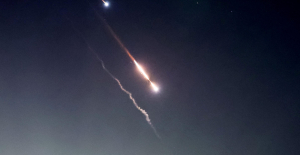 Iran's attack on Israel: these false, misleading images spreading on social networks
Iran's attack on Israel: these false, misleading images spreading on social networks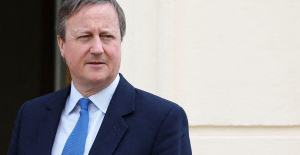 Iran-Israel: David Cameron wants the G7 to impose “coordinated sanctions” on Iran
Iran-Israel: David Cameron wants the G7 to impose “coordinated sanctions” on Iran New generation mosquito nets prove much more effective against malaria
New generation mosquito nets prove much more effective against malaria Covid-19: everything you need to know about the new vaccination campaign which is starting
Covid-19: everything you need to know about the new vaccination campaign which is starting The best laptops of the moment boast artificial intelligence
The best laptops of the moment boast artificial intelligence Amazon invests 700 million in robotizing its warehouses in Europe
Amazon invests 700 million in robotizing its warehouses in Europe Boeing tries to defuse the long-haul crisis
Boeing tries to defuse the long-haul crisis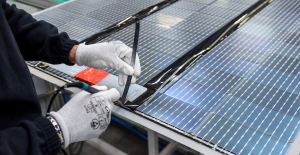 Solar panels: French manufacturer Systovi announces the cessation of its activities due to “Chinese dumping”
Solar panels: French manufacturer Systovi announces the cessation of its activities due to “Chinese dumping”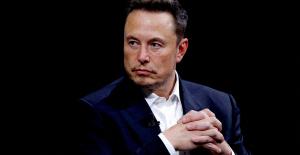 Tesla: canceled in court, Musk's huge compensation plan will again be submitted to shareholders
Tesla: canceled in court, Musk's huge compensation plan will again be submitted to shareholders Two, three or a hundred euros: who are the most generous customers with tips?
Two, three or a hundred euros: who are the most generous customers with tips? Bruno Vandelli: one year suspended sentence required against the choreographer for corruption of a minor
Bruno Vandelli: one year suspended sentence required against the choreographer for corruption of a minor Jul fills the Stade de France and the Vélodrome in record time
Jul fills the Stade de France and the Vélodrome in record time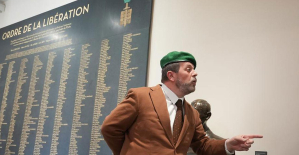 Immersion among the companions of the Liberation
Immersion among the companions of the Liberation Provence-Alpes-Côte d’Azur releases several hundred thousand euros for the promotion of the work of Marcel Pagnol
Provence-Alpes-Côte d’Azur releases several hundred thousand euros for the promotion of the work of Marcel Pagnol Skoda Kodiaq 2024: a 'beast' plug-in hybrid SUV
Skoda Kodiaq 2024: a 'beast' plug-in hybrid SUV Tesla launches a new Model Y with 600 km of autonomy at a "more accessible price"
Tesla launches a new Model Y with 600 km of autonomy at a "more accessible price" The 10 best-selling cars in March 2024 in Spain: sales fall due to Easter
The 10 best-selling cars in March 2024 in Spain: sales fall due to Easter A private jet company buys more than 100 flying cars
A private jet company buys more than 100 flying cars This is how housing prices have changed in Spain in the last decade
This is how housing prices have changed in Spain in the last decade The home mortgage firm drops 10% in January and interest soars to 3.46%
The home mortgage firm drops 10% in January and interest soars to 3.46% The jewel of the Rocío de Nagüeles urbanization: a dream villa in Marbella
The jewel of the Rocío de Nagüeles urbanization: a dream villa in Marbella Rental prices grow by 7.3% in February: where does it go up and where does it go down?
Rental prices grow by 7.3% in February: where does it go up and where does it go down? Europeans: the schedule of debates to follow between now and June 9
Europeans: the schedule of debates to follow between now and June 9 Europeans: “In France, there is a left and there is a right,” assures Bellamy
Europeans: “In France, there is a left and there is a right,” assures Bellamy During the night of the economy, the right points out the budgetary flaws of the macronie
During the night of the economy, the right points out the budgetary flaws of the macronie Europeans: Glucksmann denounces “Emmanuel Macron’s failure” in the face of Bardella’s success
Europeans: Glucksmann denounces “Emmanuel Macron’s failure” in the face of Bardella’s success These French cities that will boycott the World Cup in Qatar
These French cities that will boycott the World Cup in Qatar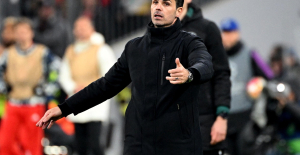 Champions League: “It’s painful, but we have to learn,” says Arteta
Champions League: “It’s painful, but we have to learn,” says Arteta Champions League: “Madrid never dies”, says Ancelotti
Champions League: “Madrid never dies”, says Ancelotti Champions League: Manchester City played “exceptionally”, according to Guardiola
Champions League: Manchester City played “exceptionally”, according to Guardiola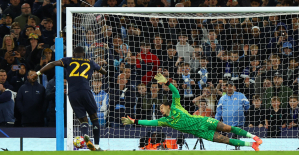 Champions League: video summary of the Manchester City-Real Madrid clash
Champions League: video summary of the Manchester City-Real Madrid clash




